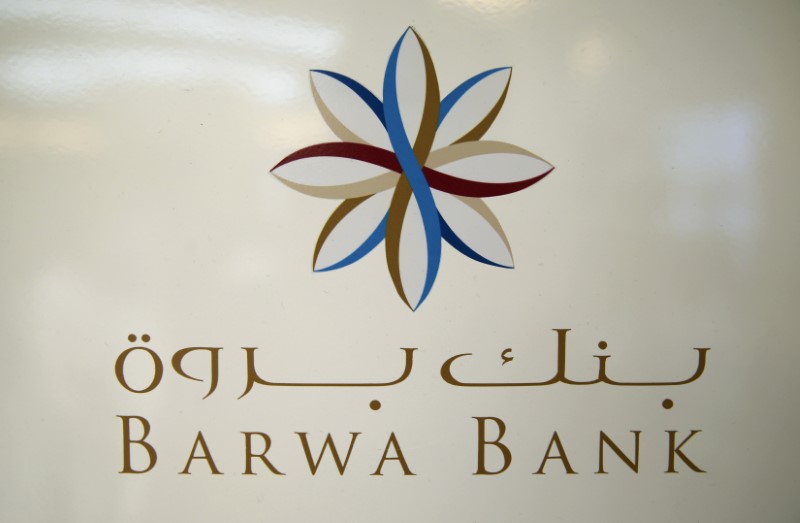By Hadeel Al Sayegh, Tom Finn and David French
DUBAI/DOHA (Reuters) - Qatari banks Masraf Al Rayan (QA:MARK), Barwa Bank
If the deal goes ahead, it would be a rare example of consolidation among banks in the Gulf, which have previously been reluctant to tie up but are facing challenging conditions due to the impact of lower oil prices on the region's economies.
The trio have begun initial discussions "to create a larger and stronger financial institution with a solid financial position and liquidity to support Qatar’s economic growth", according to a joint statement from the three banks sent to Reuters.
The new bank, which would be run in compliance with Islamic banking principles, would have assets worth more than 160 billion riyals ($44 billion or 35 billion pounds ), it added.
Masraf Al Rayan is already the second-largest bank in Qatar by market capitalisation and the largest Qatari constituent in the MSCI Emerging Markets index. It had assets worth 87 billion riyals as of Sept. 30, according to its financial statement.
Both Rayan and Barwa Bank are Islamic institutions, but IBQ currently follows conventional banking principles. Qatari regulations do not allow a lender to operate both standards, so IBQ would have to convert its business to being sharia-compliant should a deal go ahead.
Consolidation has long been talked about in the Qatari banking sector given that 18 local and international commercial banks serve a population of 2.6 million. However, reluctance among local shareholders to cede control, given the prestige of owning a bank, plus buoyant local economic conditions in recent years, have prevented tie-ups.
With previously lavish state spending being trimmed to adjust to lower oil prices, hitting banks' deposit growth and revenue generation, the argument for consolidation is now more compelling.
Though negotiations have begun, there is no guarantee any agreement will be reached: the last time a bank merger was attempted in Qatar, between Al Khalij Commercial Bank (QA:KCBK) and IBQ, it collapsed in June 2011 after more than a year of talks.
The proposed merger of Rayan, Barwa and IBQ depends on financial and legal due diligence, as well as securing approvals from regulatory authorities and shareholders of all three banks, the statement said.
Barwa Bank is 52.85 percent state owned, split between two government funds and Qatar Holding, according to Reuters calculations based on its half-year financial statement.
Qatar Holding, the investment arm of the Qatar Investment Authority (QIA) sovereign wealth fund, is also the largest shareholder in Rayan, while four government funds were in the top 10 shareholder list published in its 2015 annual report. They owned a combined 27.4 percent.

Unlisted IBQ has senior Qatari royal family members among its major shareholders, including Sheikh Hamad bin Jassim al-Thani, the former prime minister and former chief executive of QIA who serves as chairman of the bank.